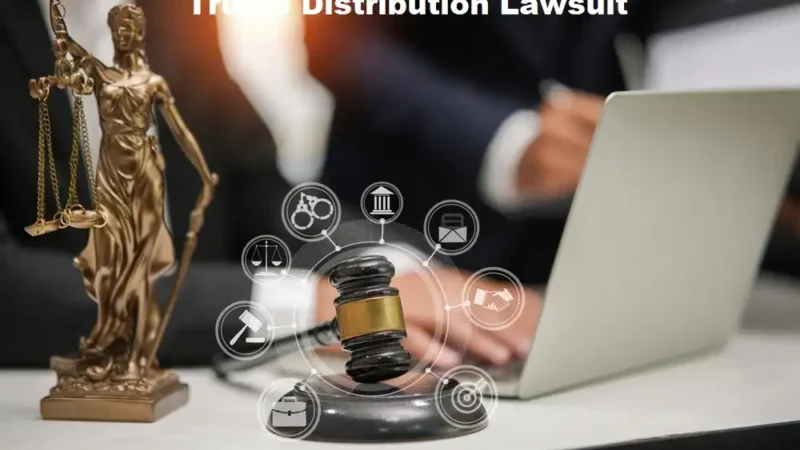An In-Depth Look on The Smoothstack Lawsuit

Introduction
The Smoothstack lawsuit has garnered significant attention due to allegations of exploitative employment practices by the IT staffing agency Smoothstack. The core issues revolve around unpaid training, excessive working hours, and predatory financial penalties imposed on employees who wish to leave before completing a mandated two-year term. This article delves into the details of the lawsuit, the allegations, and its broader implications for the tech industry.
Background
Smoothstack, an IT staffing agency, offers a six-month intensive training program for aspiring IT professionals. The program is designed to equip trainees with the necessary programming and IT skills to succeed in the industry. However, the company’s practices have come under fire following a class-action lawsuit filed by former employee Justin O’Brien in the U.S. District Court for the Eastern District of Virginia.
Key Allegations

Unpaid Training Period
Trainees allege that they receive no compensation during the first three weeks of the program, despite being required to work long hours. This lack of pay for initial training is a central complaint in the lawsuit.
Overtime Violations
For the remaining five months of the training program, trainees claim they often work up to 80 hours per week but are only compensated for 40 hours. This discrepancy suggests significant overtime violations, as the company allegedly fails to pay for the additional hours worked.
Training Repayment Agreement Provision (TRAP)
The most controversial aspect of the lawsuit is the TRAP, which binds employees to a two-year commitment with the company. If employees leave before completing 4,000 billable hours (approximately two years of full-time work), they must repay a penalty of $23,875. This clause is seen as a coercive measure to prevent employees from leaving the company for better opportunities.
Predatory Targeting
The lawsuit also alleges that Smoothstack targets vulnerable job seekers, including recent graduates and career changers, coercing them into signing the TRAP under high-pressure conditions.
Bait-and-Switch Employment Model
Smoothstack allegedly assigns trainees to work for Fortune 500 clients, including Accenture, while paying them minimum wage during periods of inactivity between assignments. This practice not only limits the career autonomy of trainees but also prolongs their dependency on the company to fulfill the TRAP requirements.
Legal Implications
The lawsuit raises critical questions about the legality of Smoothstack’s employment practices. The main legal challenges focus on:
Violations of the Fair Labor Standards Act (FLSA)
The alleged unpaid training and failure to compensate for overtime hours constitute potential violations of the FLSA. If proven, Smoothstack could face significant penalties and be required to compensate affected employees.
Enforceability of the TRAP
The legality of the TRAP is under scrutiny, with arguments that it creates an oppressive power imbalance and unlawfully penalizes employees for leaving their jobs. The lawsuit seeks to void these agreements, which are seen as predatory and unconscionable under Virginia law.
Broader Implications
The Smoothstack lawsuit has sparked a broader debate about the use of training repayment agreements (TRAs) in the tech industry and beyond. Critics argue that TRAs exploit workers, limit job mobility, and suppress wages, while proponents claim they are necessary to recoup training costs and retain talent. The outcome of this lawsuit could set a precedent for how such agreements are regulated and enforced in the future
Conclusion
The Smoothstack lawsuit highlights significant issues related to labor practices in the IT staffing sector. As the case unfolds, it will shed light on the balance between protecting employees’ rights and allowing companies to recoup training investments. The implications for both employers and employees in the tech industry could be profound, potentially leading to stricter regulations and greater protections for workers.
FAQs
1. What is the core issue in the Smoothstack lawsuit?
The core issue in the Smoothstack lawsuit centers around the company’s Training Repayment Agreement Provision (TRAP). This provision requires trainees to stay with Smoothstack for two years or face a penalty of $23,875 if they leave early. Allegations also include unpaid training, excessive working hours, and predatory financial penalties.
2. Who filed the lawsuit against Smoothstack, and what are their main allegations?
The lawsuit was filed by former employee Justin O’Brien in the U.S. District Court for the Eastern District of Virginia. O’Brien alleges that Smoothstack’s training program includes unpaid initial training, excessive working hours without proper overtime compensation, and predatory financial penalties that effectively trap employees in their jobs. He claims trainees are paid as little as $7.25 per hour for up to 80-hour workweeks during the training period, with no compensation for overtime.
3. What is the Training Repayment Agreement Provision (TRAP), and why is it controversial?
The TRAP binds employees to a two-year commitment with Smoothstack. If employees leave before completing 4,000 billable hours (approximately two years of full-time work), they must repay a penalty of $23,875. This clause is controversial because it is seen as a coercive measure that prevents employees from leaving the company for better opportunities, effectively trapping them in their jobs.
4. How does the lawsuit claim Smoothstack violates the Fair Labor Standards Act (FLSA)?
The lawsuit claims Smoothstack violates the FLSA by not paying trainees during the first three weeks of training and failing to compensate for overtime hours. Trainees allege they often work up to 80 hours per week but are only compensated for 40 hours, suggesting significant overtime violations.
5. What broader implications could the Smoothstack lawsuit have for the tech industry?
The Smoothstack lawsuit could set a precedent for how training repayment agreements (TRAs) are regulated and enforced in the future. The case raises critical questions about the legality and fairness of such agreements, which could lead to stricter regulations and greater protections for workers. The outcome may influence how companies balance protecting employees’ rights with recouping training investments.






